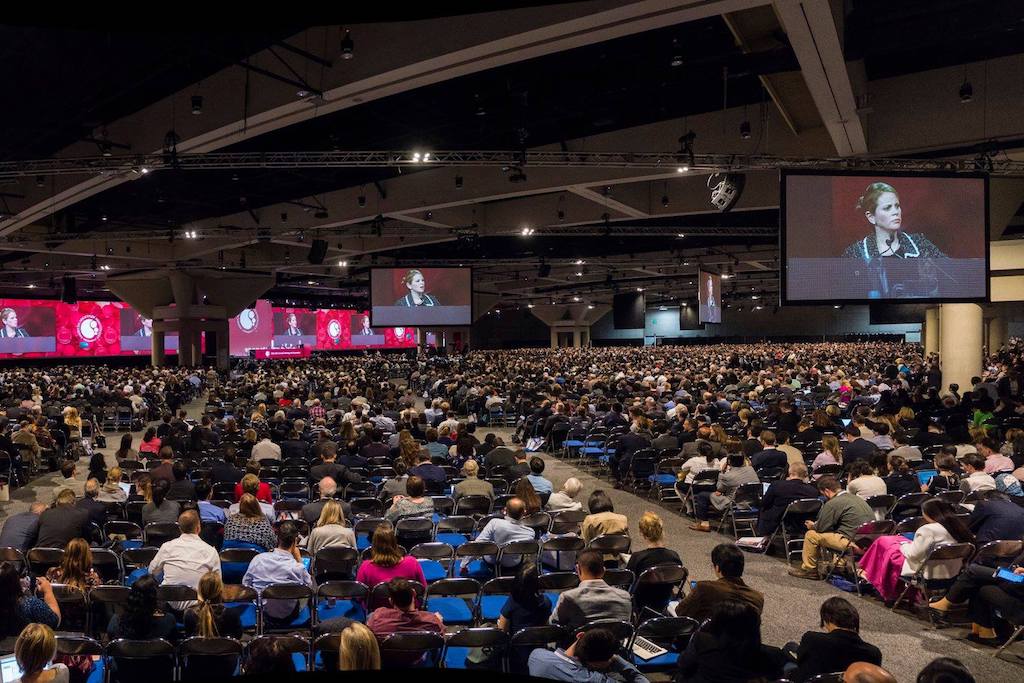Skift Take
New research from Cvent shows that group business is declining for U.S. hotels, and planners are booking room blocks closer to the date of their event than before. This is bad news for hotels, which rely on group bookings to boost business.
The common wisdom in the meetings and events space today is that planners should book as far in advance as possible in order to lock in favorable room rates and commission levels.
Booking data, however, shows that the opposite has been taking place.
The new Cvent Group Business Outlook report shows that group business for U.S. hotels is slated to decline slightly over the next two years when compared to the strong growth seen over the last few years. Cvent pulled the data from the $16 billion in request for proposals routed through its system this year.
The average size of group blocks, average peak night rooms, average event duration, and average booking window have all declined over the last year, as well. None of these declines are huge, but they show that the sector is trending towards shorter events with smaller groups, which is backed up by plenty of other evidence.
While the report doesn’t delve into pricing, it seems likely that high costs are leading planners to book smaller groups into U.S. hotels.
“The trend of U.S. upper upscale and luxury hotels reporting group occupancy declines in both 2016 and 2017 – as per data from STR – may continue,” said Brian Berry, senior vice president of sales and data analytics at Cvent. “Awarded group room night pace to U.S. hotels shows a decline in five of the next eight quarters versus the comparable quarter last year. Group room night pace for 2020 looks particularly worrisome with three of the four quarters showing declines of more than 3 percent. To make matters worse, pace for each of the three quarters worsened over the course of the prior three months.”
Those request for proposals that are awarded have increased over the last year, likely the result of planners trying to lock in high commission cuts at a time when Marriott and Hilton have moved to reduce commission rates.
“It is worth noting that commission policy changes made by a number of large hotel chains may be accelerating the RFP cycle into the third quarter this year,” said Berry.
This squares with what planners are struggling with; increased demand for quality venues has driven prices up at the same time when planners need to be decisive in locking in rates and commissions in a highly variable marketplace.
Despite the need to book farther in the future to lock in rates and commissions, planners are actually booking closer to the event date than before, according to Cvent’s analysis.
While the sector remains on strong footing, this trend is likely the sign of dysfunction in the industry based on the expectation of future uncertainty.
“Finally, our outlook highlights that lead time – the window between when a planner sends an RFP and when the event takes place – continues to shrink,” said Berry. “We believe both group size and lead time are indicators of the confidence and certainty planners, and ultimately their clients, have in the future. One would expect, during the top of an economic cycle, lead times and group sizes to increase. We continue to see the opposite.”
Check out the full report below:
Have a confidential tip for Skift? Get in touch
Tags: cvent, meetings, meetingsiq
Photo credit: American Society of Hematology 58th Annual Meeting at the San Diego Convention Center. Todd Buchanon / Facebook
